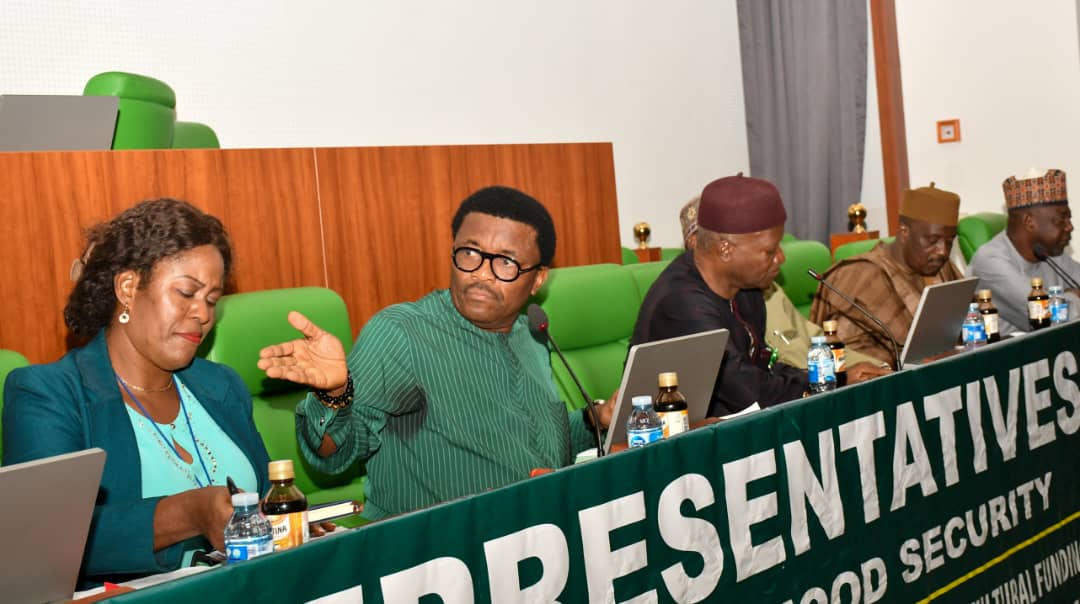NIRSAL Microfinance Bank has disclosed that insecurity has been a major setback to the full implementation of the agricultural loan scheme

The House of Representatives Committee on Nutrition and Food Security has launched an investigation into the alleged mismanagement of over ₦1.12 trillion expended under the Anchor Borrowers Programme (ABP), an agricultural intervention initiative of the Central Bank of Nigeria (CBN).
The probe also extends to the NIRSAL Microfinance Bank, which reportedly disbursed ₦215 billion to support agribusinesses, and the Bank of Industry (BOI) for its role in disbursing ₦3 billion to 22,120 smallholder farmers through the Agriculture Value Chain Financing Programme.
Speaking at an investigative hearing on Monday in Abuja, Chairman of the Committee, Rep. Chike Okafor (APC Imo), expressed concern over the lack of accountability by financial institutions involved in the ABP disbursements.
According to him, “We are probing how the Central Bank of Nigeria, through the Anchor Borrowers Programme, disbursed about ₦1.12 trillion to 4.67 million farmers involved in either maize, rice or wheat farming through 563 anchors.
“The CBN should note, we are aware that you have about 24 participating financial institutions (PFIs) through which you disburse these humongous amounts. I am also aware that you have written to 24 of them, but we have evidence of only nine. So please note. And also, some of those PFIs have tried to make contact.”
Okafor further stated that the Committee is also scrutinizing the disbursement of ₦215,066,982,074.50 by NIRSAL to facilitate agriculture and agribusinesses, as well as ₦3 billion by the Bank of Industry (BOI) to support smallholder farmers under the agriculture value chain financing programme.
“One of the key oversight mandates of the Committee on Nutrition and Food Security is to ensure proper implementation of intervention programmes by relevant Ministries, Departments, and Agencies (MDAs) related to food security and nutrition,” he said.
He added, “Investigations, monitoring of resource allocation, advancement of new laws and strengthening of existing ones, among others, are all within our jurisdiction as captured in the standing orders of the House.
“Please note that nutrition and food security are twin issues that cannot be separated and have remained on the front burner of the Renewed Hope Agenda of the present administration. The creation of this committee is a legislative response to join forces with the executive and stakeholders to ensure Nigeria becomes a food-secured and nourished nation.”
At the hearing, Charles Bassey, a representative of NIRSAL Microfinance Bank, said insecurity has been a major setback for beneficiaries trying to implement their projects.
“In trying to determine who was qualified to benefit from the intervention, we paid close attention to laid down guidelines,” he said.
“It was based on those guidelines that we disbursed these funds. Some of the challenges that they [beneficiaries] have written about included insecurity. A couple of them pointed to the fact that after they had invested the funds in agricultural businesses, they were not able to return to their farms due to experiences of banditry and herdsmen attacks. This delayed their seasonal interventions and harvesting.
“Some also pointed to natural disasters such as flooding and drought, which affected them. A few even requested loan restructuring to allow more time for repayment,” Bassey added.
Also speaking, Olushola Obikanye, Group Head of Agric Finance and Solid Minerals at Sterling Bank, revealed that the bank had repaid all funds received under the scheme.
“Therefore, the total fund repatriated to the Central Bank of Nigeria which includes both the undisbursed funds and the disbursed funds that were returned stood at ₦113,490,756,332.54,” he stated.
“And it leaves Sterling Bank with an outstanding of zero naira, zero kobo that we are owing under this scheme.”

